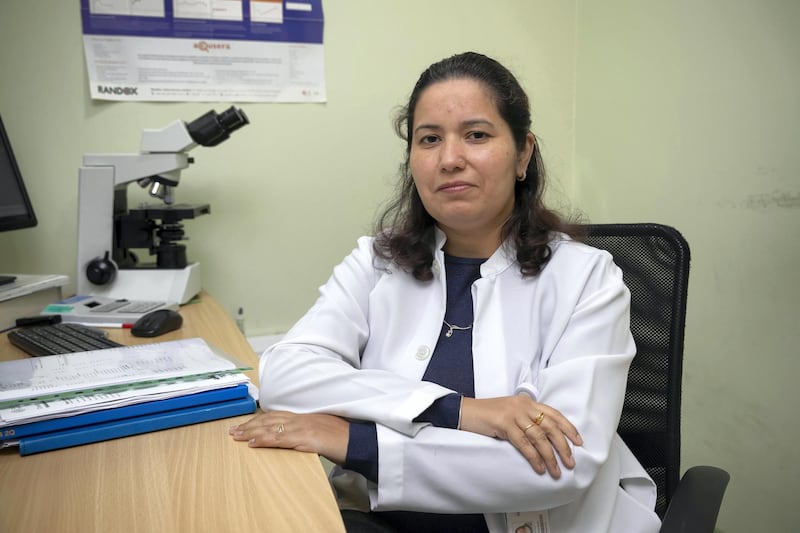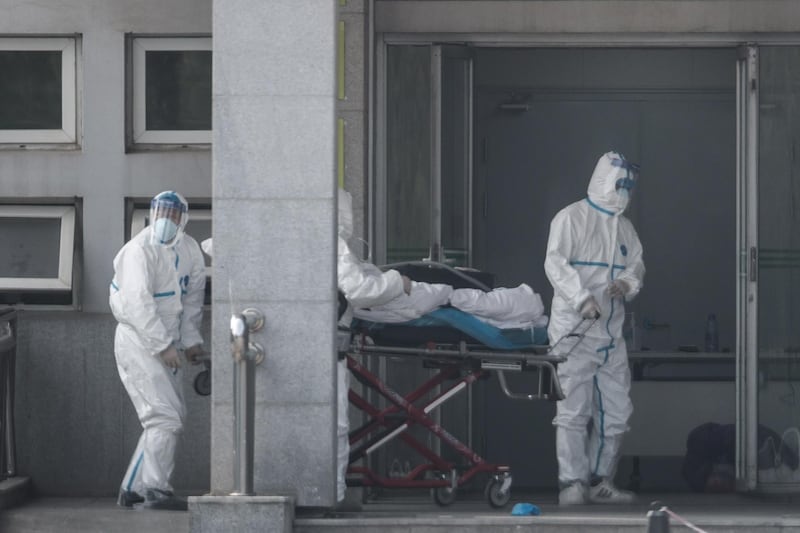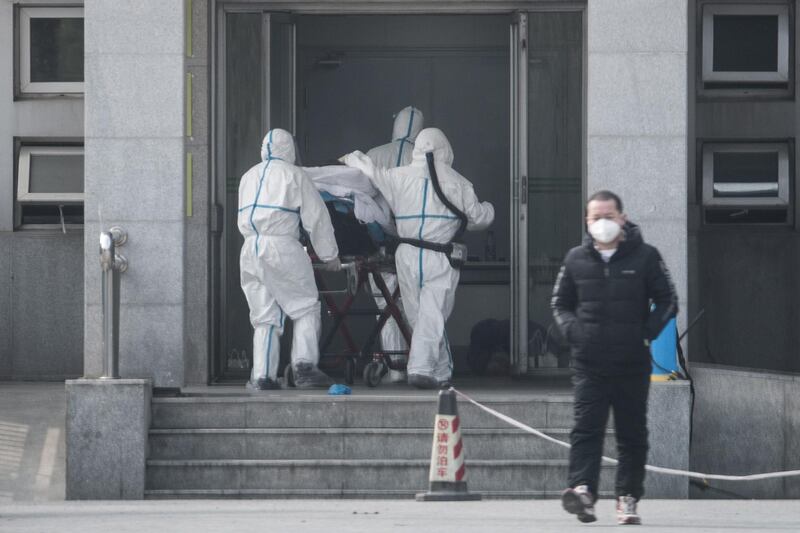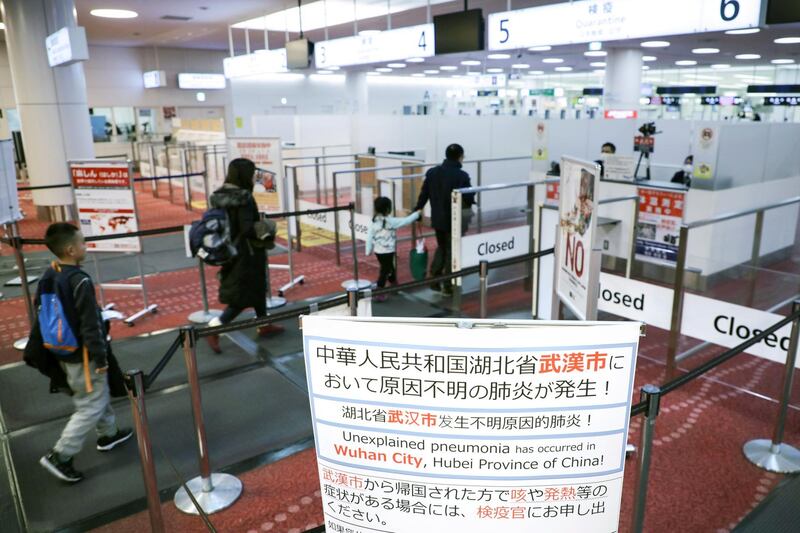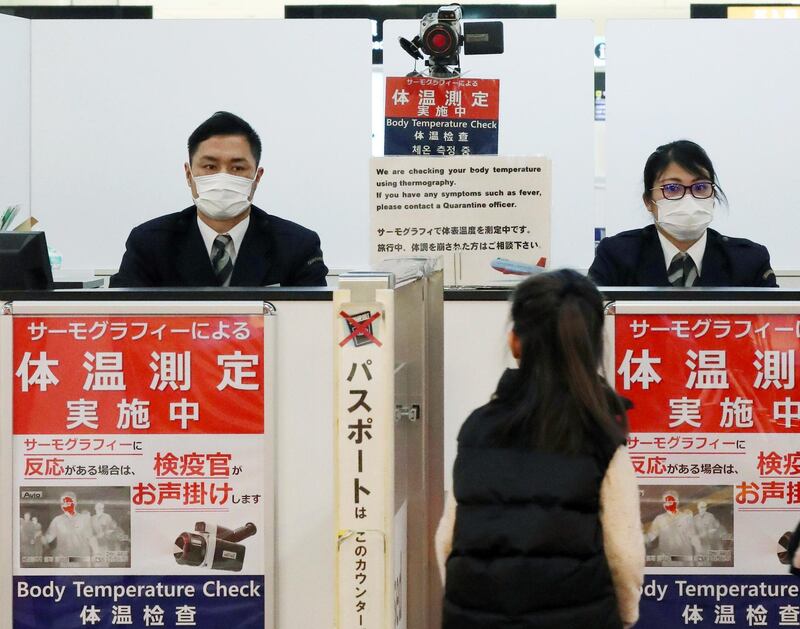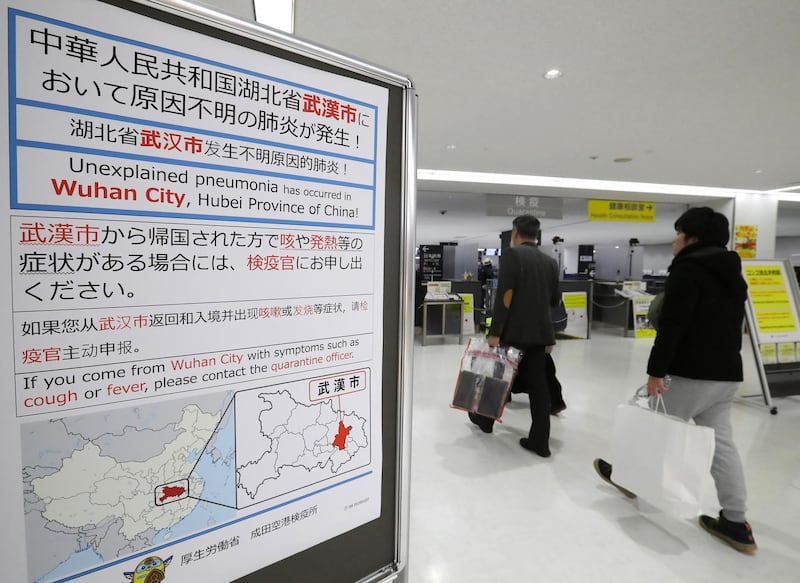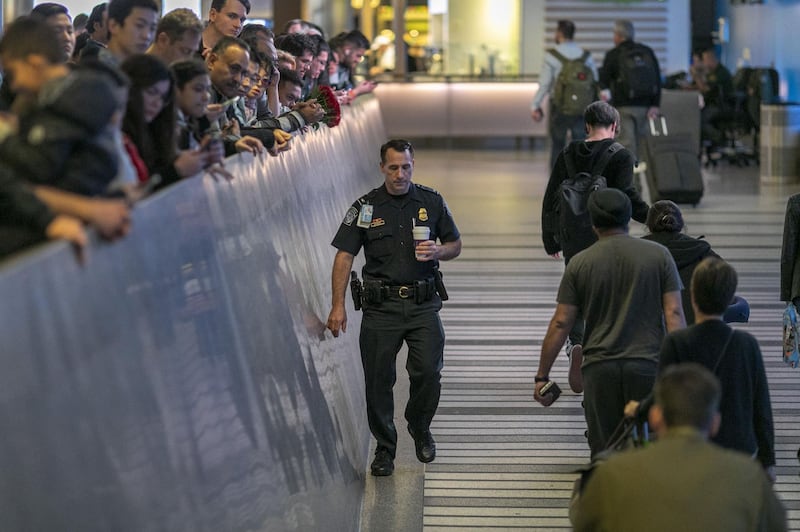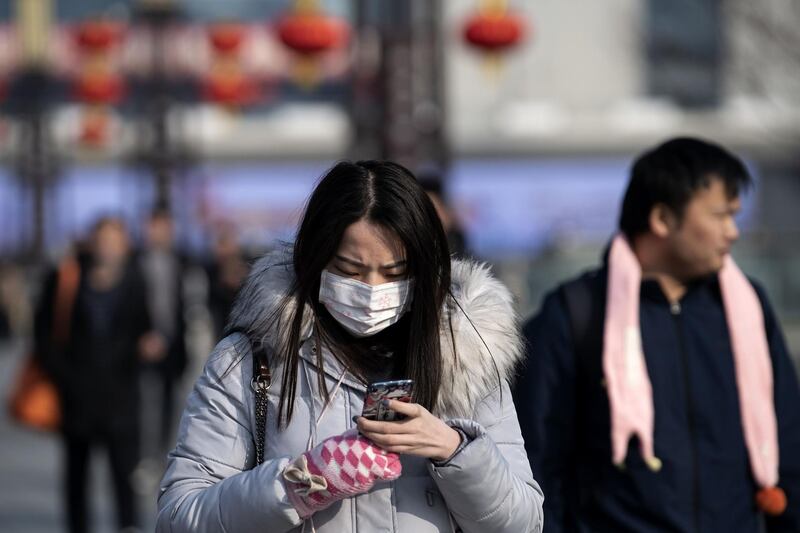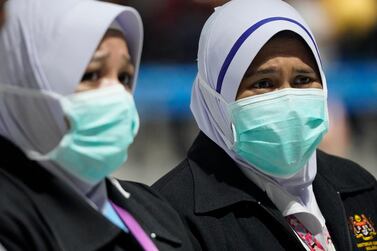Emergency action plans are in place across UAE hospitals to cope with any outbreak of a flu-like virus that has appeared in Asia.
As a major transit hub connecting east and west, private hospitals in Dubai are bracing themselves for any patients showing signs of the virus and who have recently travelled through high-risk regions.
Although no cases of the new coronavirus have been reported in the UAE, local health officials said clinics were fully prepared.
“We have had updates from the Ministry of Health that we have passed on to our clinicians,” said Dr Ruchi Nasa, pathologist at Medeor Hospital in Dubai.
“The staff are all aware of this new emerging infection, and we are well prepared for any potential outbreak.
“Although there is no need for concern at the moment, we have isolation rooms prepared if there are any cases here.
“We should not panic, but as Dubai is at the crossroads of the world we need to be aware of this.
“It is like all other respiratory illnesses, with a cough or fever that will not go.”
Chinese authorities said the virus, which has killed six people and infected close to 300, can be transmitted between humans, fuelling fears of a lethal epidemic similar to the Sars one that tore through the region in 2002 and 2003, infecting more than 8,000 people and killing 774.
The coronavirus first surfaced in Wuhan in December, but has since spread to Beijing, Shanghai and Shenzhen, hundreds of kilometres away.
Dr Nasa said anyone travelling to China or the surrounding area should take precautions if they are visiting towns where cases have been reported.
“If they have symptoms they should use a respiratory mask, avoid crowded places and generally try to stay out of contact with others," she said.
“As with all respiratory viruses, children, the elderly and anyone with existing lung conditions like asthma and chronic obstructive pulmonary disease are more vulnerable to symptoms.”
The Ministry of Health and Prevention said it was closely following the latest updates with the spread of the new coronavirus, and reassured the public it does not currently pose any risk to public health.
Anyone presenting at a primary health clinic with symptoms and a travel history to the infected region will be tested with a nasal swab and isolated until a diagnosis can be made.
Dr Sundar Elayaperumal, the chairman of infection control at Burjeel Hospital, said the new virus could have a similar effect as the Sars outbreak.
“It’s a Sars-like virus, and it’s looking like it will be of the same intensity as well,” he said.
“There is no proper treatment for this or vaccine so it’s better to prevent rather than treat it.”
Some health centres have been performing drills to deal with a pandemic scenario.
“This time we conducted a drill about an outbreak of haemorrhagic viral fever to rehearse the steps you should take when the patient reaches the emergency room,” said Dr Elayaperumal.
“That’s the first place they will enter because of the severity of the illness.
“This scenario was given to the infection control team as well as the ER team to go through how to receive the patient, how to transfer them, how to isolate them and collect blood samples.
“We would need to give all this information to the public health authority.”
